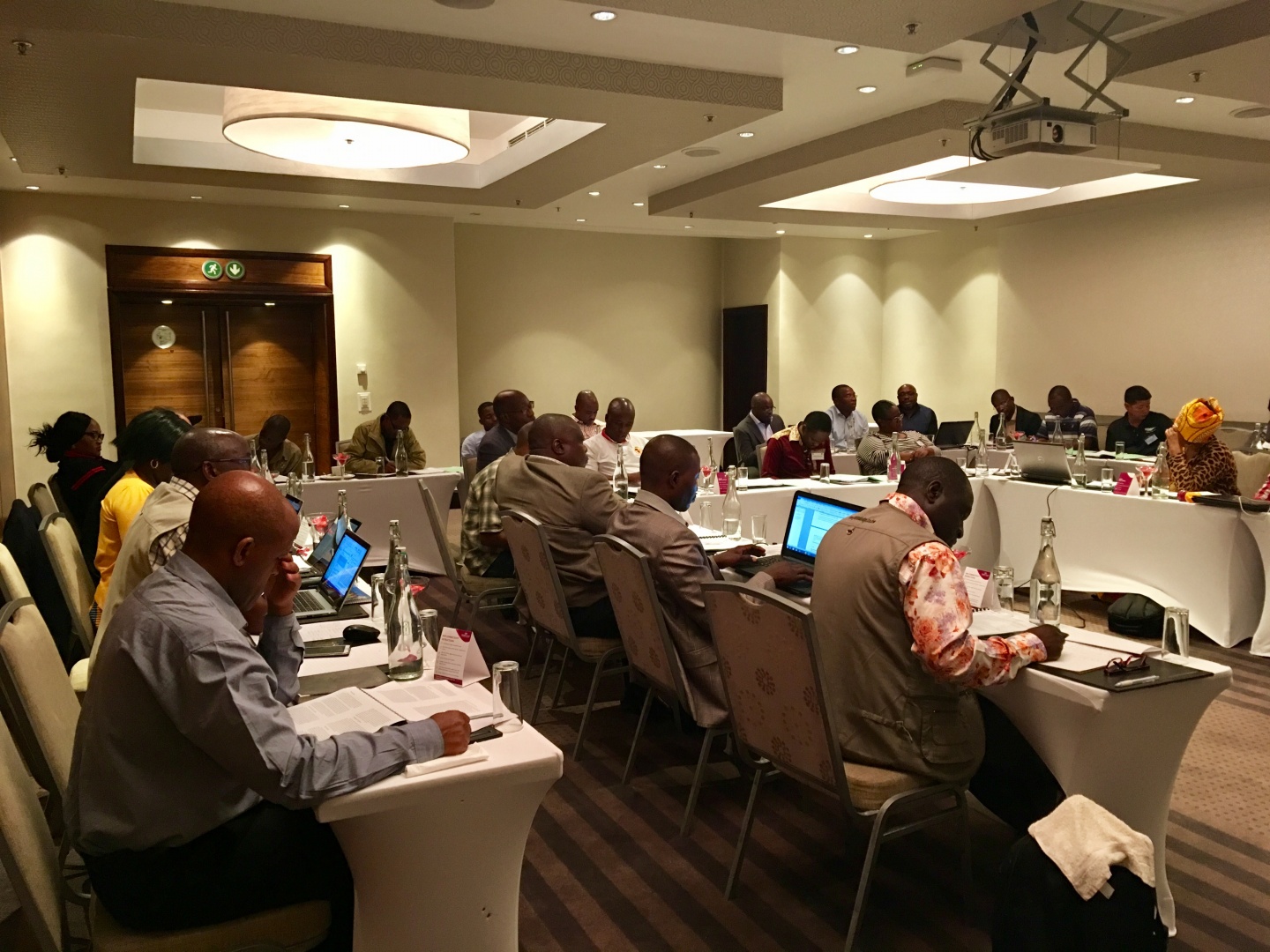Read this article in:
English
8 November, 2016Trade unions from the energy sector, including IndustriALL Global Union affiliates, met in Johannesburg, South Africa from 13 to 14 October for the Southern African Energy Network’s (SAEN) annual conference.
Thirty-one delegates, including seven women, from Angola, Botswana, DRC, Malawi, Mozambique, Namibia, Swaziland, South Africa, Zambia and Zimbabwe met to discuss challenges that workers face in Sub-Sahara Africa and plan activities for the year ahead.
The conference, which was supported by the FES organization, addressed issues such as job losses in the sector; organizing and labour laws in Zimbabwe; energy policy research; and energy and energy unions in Angola. Participants also received the SAEN secretariat report and a presentation on international platforms by the director of energy for IndustriALL, Diana Junquera Curiel.
Country reports showed that many unions are engaging in collective bargaining with employers and reaching agreements on wages and conditions. However, the conference emphasized that the clause on essential services in labour law continues to be a problem for energy workers, making it impossible for them to exercise their right to strike. Nonetheless, NUM in South Africa told how they waged a successful strike despite the clause in 2016 but more work needs to be done to change the South Africa labour law. The conference called on all participating unions to challenge their governments to exclude energy workers in the definition of essential services in labour laws or amend them to cover the right of workers to strike in support of their demands for improved wages and conditions of employment.
Particular attention was paid to Zimbabwe where there are continued job losses and economic difficulties for workers. Companies are closing down and workers go for months without salaries. When workers demonstrate to demand their wages from either the government or company, they are arrested by public order police. However, workers in Zimbabwe continue to organize members and fight for the improvement of working conditions and for workers to be paid.
The conference received a progress report on the draft research paper on policy framework for Southern Africa as commissioned by SAEN. The research document is in circulation for member unions to study and make comments for further input. This document is intended to help SAEN members engage with energy authorities and employers on energy policy to lobby for change.
In addition, the SAEN secretariat will organize capacity building workshops for the participating unions in 2016 in order to create a more effective network.
“It is important to develop and strengthen the network so that it is effective all year round. The energy sector in the region faces a great many challenges and the more we work together, the better we can overcome them,” said Junquera Curiel.
As part of the solidarity actions of the network, the conference agreed that organizing work must continue in Angola and assist in the capacity building of Angolan energy union, FSIMEQ, for its sustainability. Organizing work will be continued in DRC and Zambia.
In conclusion, the conference maintained its previous office bearers with the exception of the election of Joseph Kamuendo of ESCOM Malawi as the Chairperson of the network. Ndlela Radebe, Secretary of NUM in South Africa is the Secretary, Bohithetswe Lentswe of Botswana Power Corporation Workers Union is the deputy secretary, Martin Chikuni of Zimbabwe Energy Workers Union, is the committee member, Jonathan Peles of TUICO Tanzania is the deputy chairperson.



